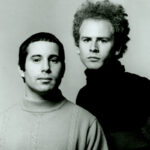Johnny Preston’s 1960 chart-topper, “Running Bear,” is a song that immediately grabs your attention, and for reasons that extend beyond its catchy melody. While a hit in its time, a modern listen to “Running Bear” reveals a deeply problematic element: its undeniable racism. This isn’t to say Johnny Preston, or perhaps even audiences in 1960, consciously intended it as a racist song. However, examining “Running Bear” through a contemporary lens highlights how cultural insensitivity and harmful stereotypes can permeate even seemingly innocent pop songs.
“Running Bear” tells the tale of forbidden love between a young Native American man, Running Bear, and Little White Dove, a woman from a rival tribe. Their tragic romance culminates in their drowning as they attempt to meet. On the surface, it’s a classic story of star-crossed lovers. However, the song’s arrangement choices inject a jarring and uncomfortable layer of racial caricature. The most prominent example is the inclusion of stereotypical “tribal war chants” in the background. These chants, performed by none other than country music legend George Jones and rockabilly icon Jiles Perry Richardson (The Big Bopper), are not authentic Native American music. Instead, they are a fabricated, cartoonish representation, reducing Native American culture to simplistic and offensive tropes.
Musically, “Running Bear” is rooted in rockabilly, characterized by its driving beat and prominent saxophone solo. Johnny Preston delivers the narrative with a smooth, almost detached Southern drawl. This casual delivery clashes starkly with the supposed tragedy of the storyline. When Preston sings of Running Bear and Little White Dove finding eternal union in the “happy hunting ground,” it lacks genuine pathos. The line, intended to be a poignant resolution, instead feels dismissive and trivializes the death of the characters and, by extension, Native American spirituality. The song’s upbeat tempo and superficial treatment of a potentially meaningful story contribute to its overall unsettling effect.
In conclusion, while “Running Bear” may have been conceived and initially received as a harmless love ballad with a rockabilly twist, its legacy is now inextricably linked to its racial insensitivity. The use of fake tribal chants and the simplistic portrayal of Native American characters are undeniably racist, regardless of the intent behind them. Revisiting “Running Bear” today serves as a crucial reminder of how cultural appropriation and stereotypical representations were once normalized in popular culture and underscores the importance of critical listening and cultural sensitivity in our understanding of music history.


